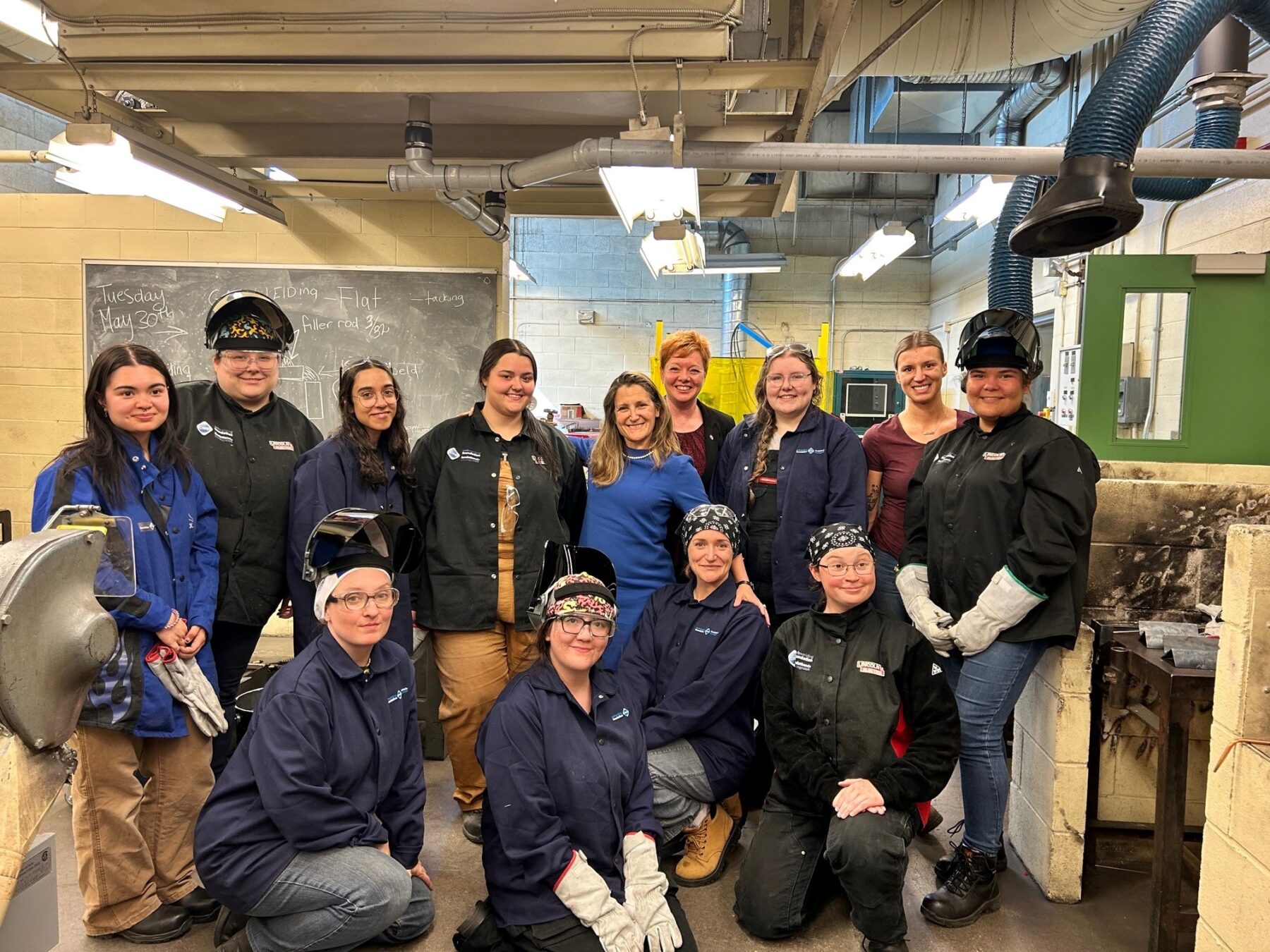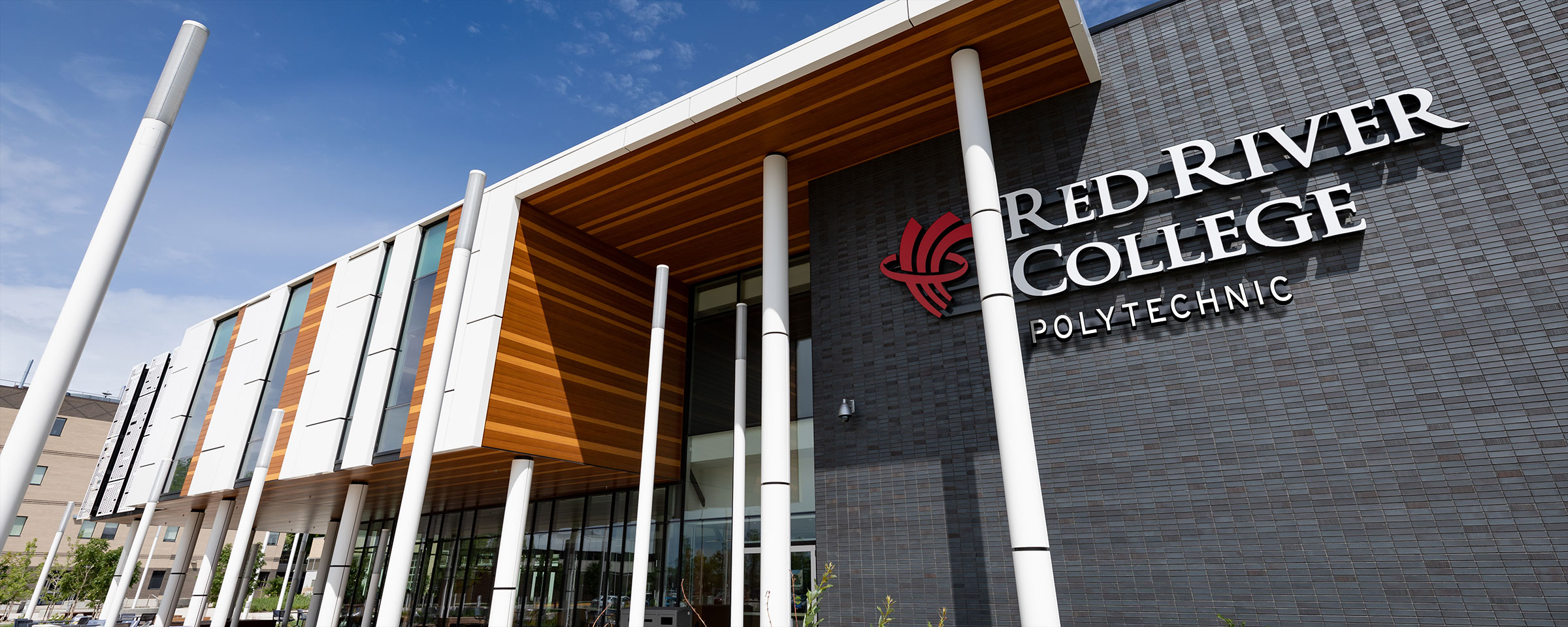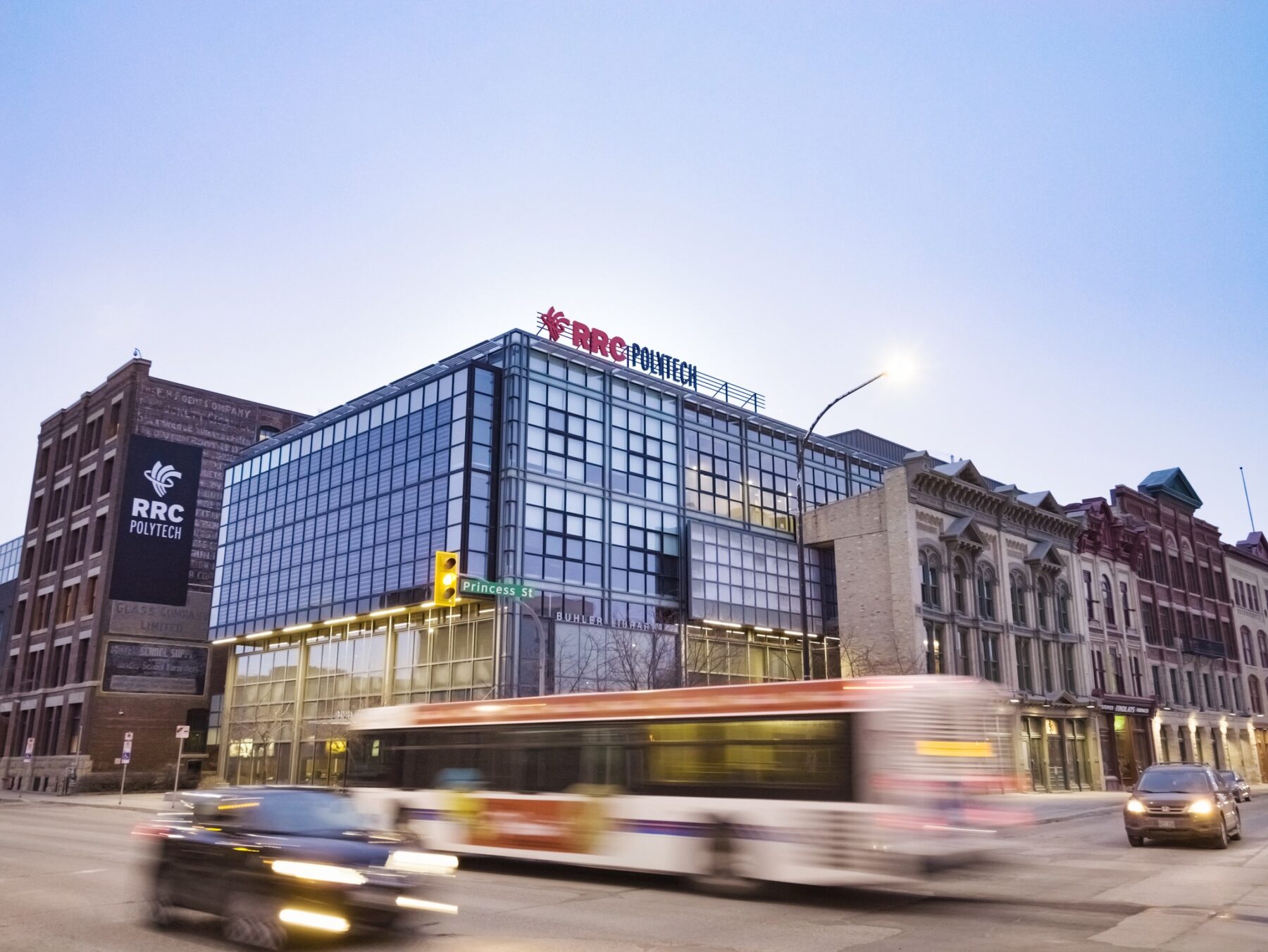RRC Polytech hosts Deputy Prime Minister and Minister of Finance, the Honourable Chrystia Freeland at Notre Dame Campus
Last week, RRC Polytech was pleased to host Deputy Prime Minister and Minister of Finance, the Honourable Chrystia Freeland at the Notre Dame Campus. Minister Freeland participated in a roundtable discussion with industry partners, toured spaces across the campus, and had the opportunity to speak with students, faculty and leaders about the important work we are doing at Manitoba’s Polytechnic.
The visit began with an economic roundtable discussion with Minister Freeland and industry stakeholders from across Manitoba, hosted by RRC Polytech President and CEO, Fred Meier, VP Academic, Dr. Christine Watson, and VP Indigenous Strategy, Research and Business Development, Jamie Wilson.
Following the hour-long discussion, President Meier and Derek Kochenash, Dean of Skilled Trades and Technology, toured Minister Freeland around the campus and met with staff and faculty in RRC Polytech’s Smart Factory and Jan den Oudsten Vehicle Technology Research Centre, MotiveLab, and spoke with students in our Transportation Technology and Women of Steel programs.
This visit provided RRC Polytech the opportunity to invite key community and business leaders on Campus, and to highlight to our national leaders how RRC Polytech’s programs and applied research directly benefits priorities in the federal budget related to clean technology, EV technology and support for critical minerals and mining.




















